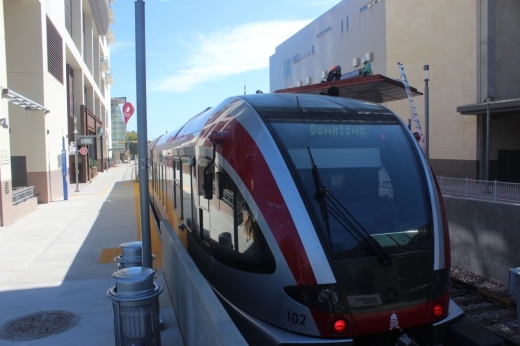The funding will be shared among local nonprofits for support of residents at risk of displacement given housing pressures that are anticipated with the new rail network's development. Rosie Truelove, director of the Austin Housing and Planning Department, said the dollars have the potential to create stability for renters and homeowners along proposed Project Connect lines by providing "affordable housing units and asset-building opportunities."
“Our goal is to inspire and fund community-driven solutions that are informed by demographic data and research, made available to the public to identify communities at risk of displacement," said Nefertitti Jackmon, Austin's community displacement prevention officer. "These community-driven processes are not simply innovation. It’s community innovation designed to propel the city of Austin toward transportation and housing solutions that are equitable for Austinites."
Officials said the anti-displacement dollars could be spent on work such as tenant stabilization, foreclosure assistance, and supporting economic mobility and opportunities such as homeownership.
The city is now accepting applications for the newly opened Project Connect Anti-Displacement Community-Initiated Solutions, which will provide up to $20 million to eligible groups. The deadline to apply is June 13 at 4 p.m.
The new program is the second of three anti-displacement funding opportunities the city is launching this fiscal year; the first opened in late 2021, and Truelove said the next could open as soon as next month. City Council has approved a total of $65 million in anti-displacement spending across those three blocks so far, pulled from the $300 million reserved in the overall Project Connect package for displacement prevention over 13 years.
More information is available through the housing department's website. A virtual informational meeting on the $20 million in available funding will be held April 20 at 5 p.m.





